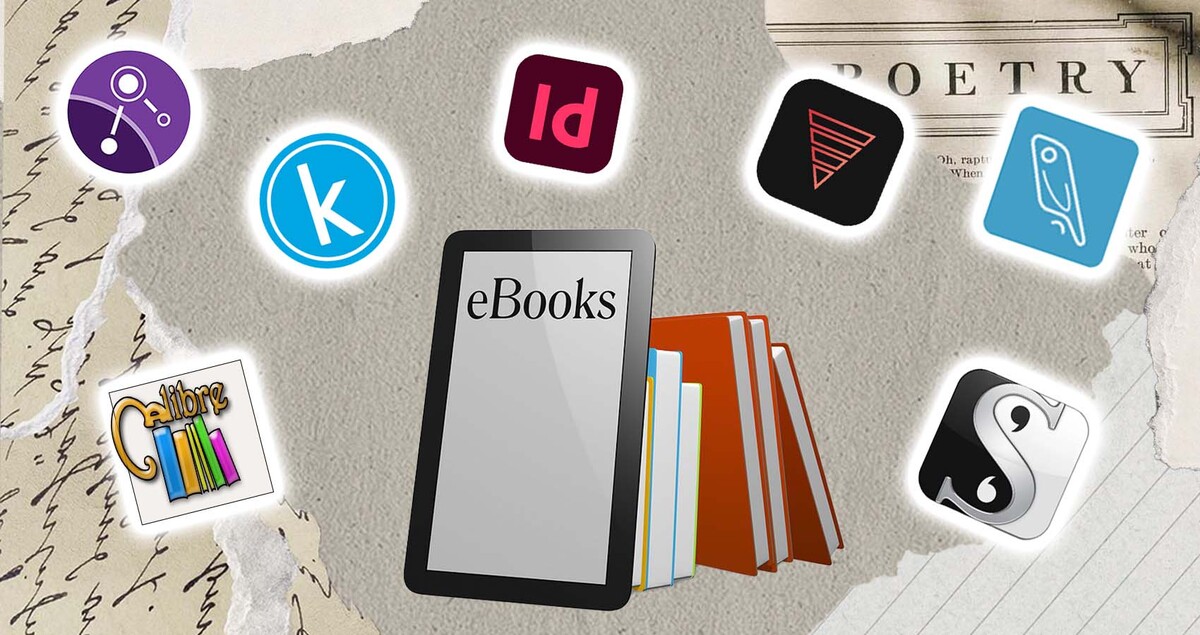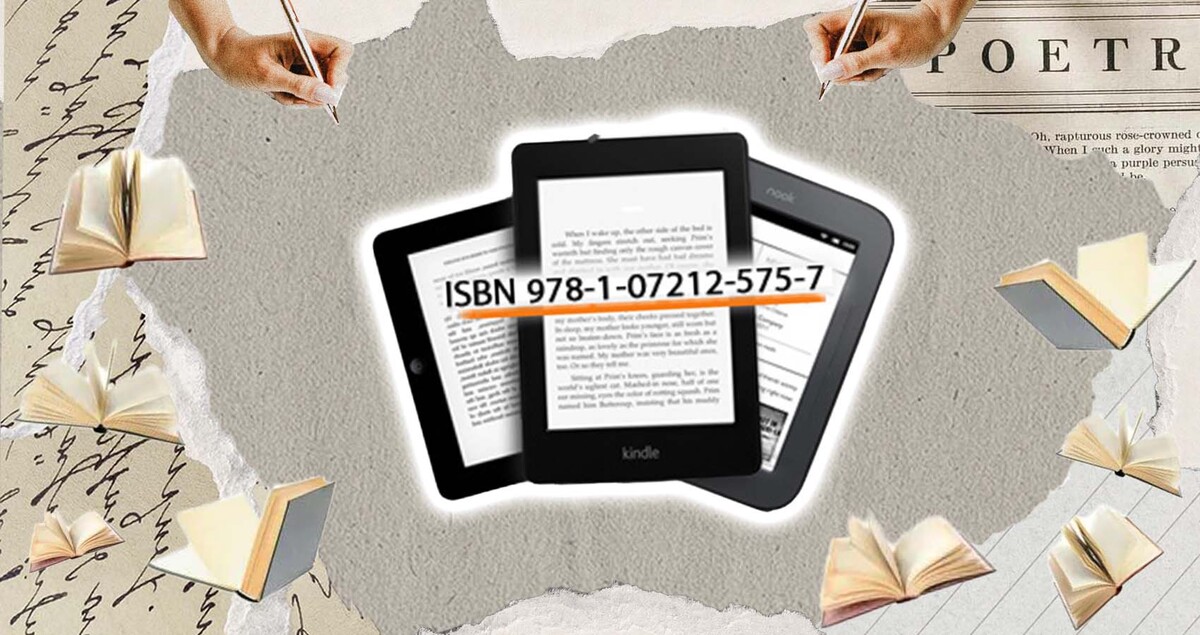
Top Tools for eBook Conversion and How ISBN Numbers Enhance Reach
Convert books to eBooks and boost reach with ISBN benefits.
Converting a book into an eBook format offers countless advantages for authors and publishers, but choosing the right tools can make a world of difference in quality, compatibility, and ease of distribution. In addition to using the right tools, securing an ISBN number for your eBook can improve its visibility and expand its reach to a global audience. This guide covers the top eBook conversion tools available today and explains how an ISBN number can boost your book's distribution potential.
1. Top eBook Conversion Tools

Here are some of the best tools currently available for converting manuscripts into various eBook formats:
1. Calibre
-
Overview: Calibre is a popular, open-source tool that converts books into a variety of eBook formats, such as EPUB, MOBI, and PDF.
-
Features:
-
Converts between multiple eBook formats.
-
Supports various platforms, including Windows, macOS, and Linux.
-
Offers an eBook library management system.
-
Best For: Authors or small publishers looking for a free, robust tool for eBook conversion.
2. Scrivener
-
Overview: Known for its powerful writing and organizational tools, Scrivener also allows authors to compile their manuscripts into eBook formats like EPUB and Kindle.
-
Features:
-
Streamlined writing and note-keeping tools.
-
Customizable eBook formatting.
-
Available on Windows, macOS, and iOS.
-
Best For: Authors who want an all-in-one writing and conversion tool.
3. Adobe InDesign
-
Overview: Adobe InDesign offers professional-grade design and layout features, ideal for converting more complex publications like textbooks and photo books into eBooks.
-
Features:
-
Advanced design tools for text, images, and layouts.
-
Supports EPUB and PDF formats.
-
Ideal for books with complex layouts and images.
-
Best For: Professional publishers looking for high-quality eBook formatting.
4. Kindle Create
-
Overview: Kindle Create is Amazon’s dedicated tool for formatting eBooks to be published on Kindle Direct Publishing (KDP).
-
Features:
-
Converts Word and PDF documents into Kindle-compatible files.
-
Provides tools for creating interactive table of contents.
-
Easy-to-use, especially for beginners.
-
Best For: Authors focusing on Kindle and Amazon-exclusive distribution.
5. IBM Services for PDF to eBook Conversion
-
Overview: IBM offers paid tools and services that allow seamless conversion from PDF to eBook formats, prioritizing quality and accuracy.
-
Features:
-
Reliable PDF to eBook conversion with minimal formatting errors.
-
Custom options to preserve layout and design elements.
-
Best For: Those looking to convert high-quality PDF manuscripts into eBook formats with professional assistance.
6. Reedsy Book Editor
-
Overview: The Reedsy Book Editor is a free, web-based tool specifically designed for authors and editors to convert manuscripts into EPUB and MOBI formats.
-
Features:
-
Simple drag-and-drop interface for formatting.
-
Compatible with both EPUB and MOBI for wide distribution.
-
Collaboration-friendly for authors working with editors.
-
Best For: Authors looking for a straightforward, web-based eBook conversion solution.
7. Vellum
-
Overview: Vellum is a user-friendly tool available for Mac users that allows authors to create beautifully formatted eBooks for Kindle, Apple Books, and more.
-
Features:
-
Simple formatting for a professional look.
-
Exports to multiple eBook platforms.
-
User-friendly with preview options.
-
Best For: Mac users wanting a clean, polished eBook layout without extensive customization.
2. How ISBN Numbers Enhance eBook Reach

While it’s not always mandatory to have an ISBN for an eBook, having one can significantly enhance its discoverability and credibility, especially when selling across multiple platforms.
What is an ISBN?
An ISBN, or International Standard Book Number, is a 13-digit identifier unique to a specific version of a book. It allows booksellers, libraries, and distributors to quickly identify and catalog books, ensuring each format of a book (e.g., paperback, hardcover, eBook) has a distinct identifier.
Benefits of ISBN Numbers for eBooks
-
Improved Discoverability Across Platforms
-
An ISBN allows eBooks to be listed in major bibliographic databases, including Bowker’s Books In Print and Nielsen BookScan. This increases your book’s visibility among booksellers and distributors worldwide, helping more potential readers discover it.
-
Wider Distribution Options
-
Many global distribution channels, including Apple Books, Kobo, and some library systems, require an ISBN for cataloging eBooks. This ensures that your book is available across a wider range of platforms, expanding its potential readership.
-
Enhanced Tracking and Sales Analysis
-
An ISBN enables effective tracking of book sales across various outlets, helping publishers monitor where their eBooks are performing best. This data can inform marketing strategies and distribution efforts.
-
Brand Credibility and Professionalism
-
An ISBN conveys a level of professionalism and legitimacy to readers, retailers, and libraries. Even though Kindle Direct Publishing (KDP) does not require an ISBN for eBooks sold on Amazon, having one can add credibility if you plan to publish on multiple platforms.
How to Get an ISBN for Your eBook
-
Purchase Directly: Authors in the U.S. can buy ISBNs directly from Bowker, the official agency for ISBNs. Many other countries have their own agencies (e.g., Nielsen in the U.K.).
-
Use a Publisher-Provided ISBN: Some self-publishing platforms provide free ISBNs, but keep in mind that this might list the platform or publisher as the "publisher of record," not you.
Conclusion

Selecting the right tools for eBook conversion and securing an ISBN can elevate your book’s reach, quality, and market presence. Whether you’re a first-time author or a seasoned publisher, using tools like Calibre, Vellum, or Adobe InDesign can streamline the conversion process, while an ISBN boosts your book’s discoverability and credibility. With these tools and identifiers in place, your eBook will be ready to reach a broader audience and make an impact in the digital book market.











